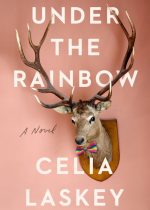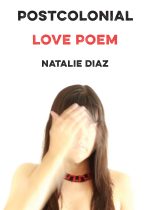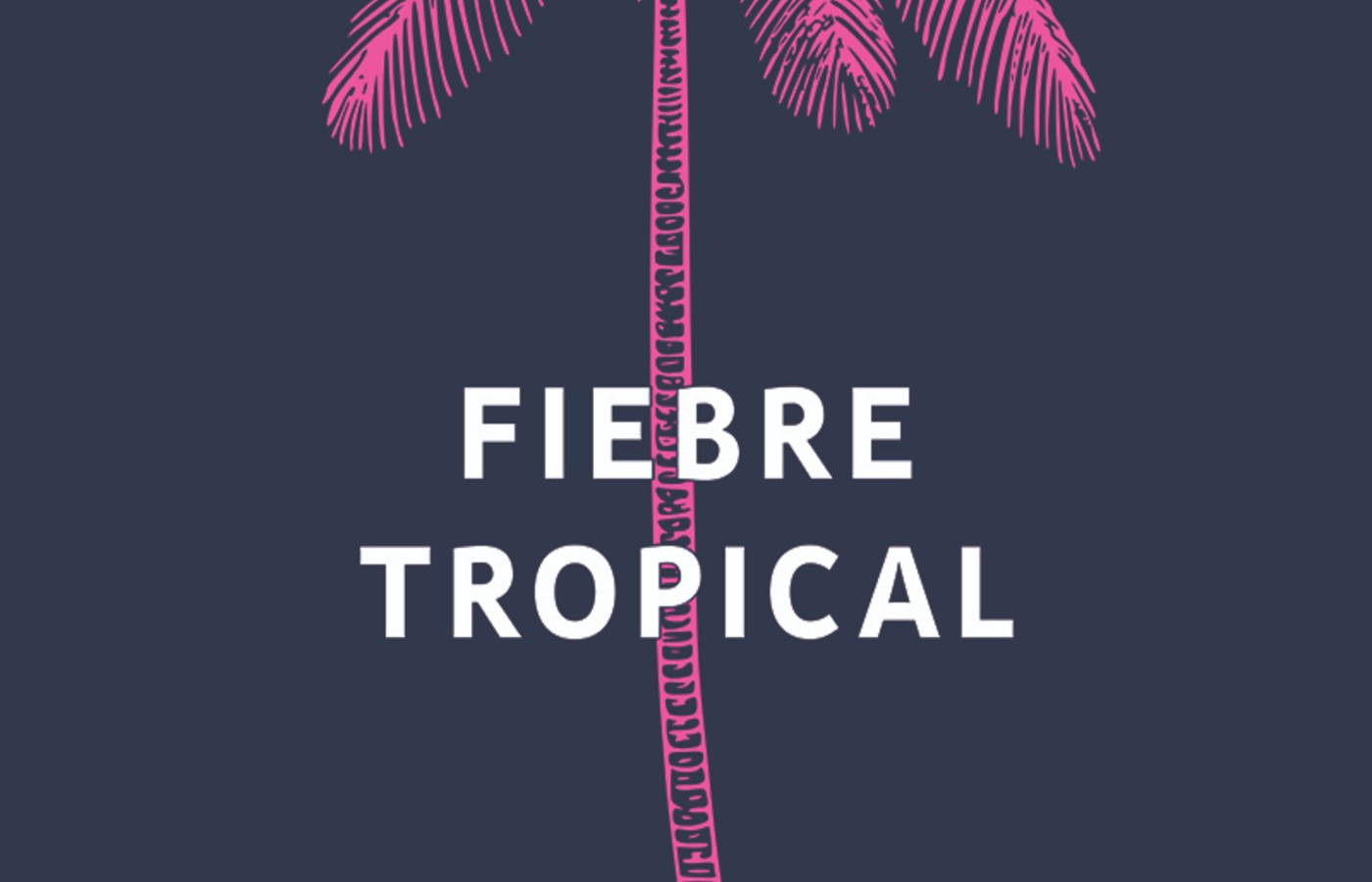March’s Most Anticipated LGBTQ Books

Author: Lilia Shrayfer
March 4, 2020
In honor of March as National Foreign Language Month, here is your favorite word (book) in seven languages with which you may, or may not, be familiar! Azerbaijani-Kitab; Estonian-Ramat; Farsi-Ketabi; Luxembourgish-Buch; Mongolian-Nom; Zulu-Incwadi. And here are all the LGBTQ Knigi (Russian) you can add to your shelf this month.
In the captivating Fiebre Tropical, by Lambda Literary Fellow Juliana Delgado Lopera, a young protagonist grapples with a chaotic new life and an intense, but troubled, relationship.
Uprooted from her comfortable life in Bogotá, Colombia, into an ant-infested Miami townhouse, fifteen-year-old Francisca is miserable and friendless in her strange new city. Her alienation grows when her mother is swept up into an evangelical church, replete with Christian salsa, abstinent young dancers, and baptisms for the dead.
But there, Francisca also meets the magnetic Carmen: opinionated and charismatic, head of the youth group, and the pastor’s daughter. As her mother’s mental health deteriorates and her grandmother descends into alcoholism, Francisca falls more and more intensely in love with Carmen. To get closer to her, Francisca turns to Jesus to be saved, even as their relationship hurtles toward a shattering conclusion.
I’ve noticed that if the book’s title has the word “Perfect” in it, something awful is going to happen. In the case of The Perfect World of Miwako Sumida, author Clarissa Goenawan begins the novel with a tragic death. But Goenawan, like any skilled novelist, manages to elegantly reveal both the pain and beauty of unraveling a life after loss. This is only her second novel to date, and she’s already been compared to the wizard of world-building, Haruki Murakami.
On The Perfect World of Miwako Sumida, from the publisher:
University sophomore Miwako Sumida has hanged herself, leaving those closest to her reeling. In the months before her suicide, she was hiding away in a remote mountainside village, but what, or whom, was she running from? Ryusei, a fellow student at Waseda who harbored unrequited feelings for Miwako, begs her best friend Chie to bring him to the remote village where she spent her final days. While they are away, his older sister, Fumi, who took Miwako on as an apprentice in her art studio, receives an unexpected guest at her apartment in Tokyo, distracting her from her fear that Miwako’s death may ruin what is left of her brother’s life.
Expanding on the beautifully crafted world of Rainbirds, Clarissa Goenawan gradually pierces through a young woman’s careful façade, unmasking her most painful secrets.
Repeat after me: Peter Piper the Pickled Pepper Picker Picked A Peck of Pickled Peppers. Got it? Now try this one: The Fabulous Ekphrastic Fantastic. Better yet, order a copy from Sibling Rivalry Press. Author and Founding Editor of queer literary collective Foglifter, Miah Jeffra’s collection explosively subverts genres, moving seamlessly between critical, narrative and lyrical modes to take the reader on a seductive journey through the perceptions and aesthetics of sexuality, as depicted by art.
On The Fabulous Ekphrastic Fantastic, from the publisher:
“A river’s edge, if approached too close, can sweep a body beyond itself.” In The Fabulous Ekphrastic Fantastic!, Miah Jeffra perfects apostrophe as canticle, a host of heroes beckoning the reader deeper into the waters of selfhood, Madonna, Mary Shelley, Felix Gonzalez Torres, Plato, and Jeffra’s mother among them. Jeffra explores the nature of gender, sexuality, aesthetics, and love, taking a tiny hammer to the stability of the limits of perception, troubling the tether between perception and memory. At once memoir and cultural criticism, this collection discovers itself as a book about forgiveness, family, and the truths we find in “the lightness of a door,” “the probability of a radio,” the long line between one story and another.
Find yourself saying “no” when your work buddies invite you out for drinks? Do you treasure time in your room above all else? According to Lambda Literary Award Winner for both Gay Fiction and Creative Nonfiction, Fenton Johnson, it might not be so bad to be a recluse. At the Center of All Beauty: Solitude and the Creative Life offers the lives of historical literary giants as evidence in the compelling case for seclusion and peace. Thank Goodness… someone gets me.
From the publisher:
Whether seeking more time for solitude or suffering what seems a surfeit of it, readers will find the best of companions here. Fenton Johnson’s lyrical prose and searching sensibility explores what it means to choose to be solitary and celebrates the notion, common in his Roman Catholic childhood, that solitude is a legitimate and dignified calling. He delves into the lives and works of nearly a dozen iconic “solitaries” he considers his kindred spirits, from Thoreau at Walden Pond and Emily Dickinson in Amherst, to Bill Cunningham photographing the streets of New York; from Cézanne (married, but solitary nonetheless) painting Mont Sainte-Victoire over and over again, to the fiercely self-protective Zora Neale Hurston. Each character portrait is full of intense detail, the bright wakes they’ve left behind illuminating Fenton Johnson’s own journey from his childhood in the backwoods of Kentucky to his travels alone throughout the world and the people he has lost and found along the way.
This month in fantasy, get ready for Lambda Literary Award Winner TJ Klune’s The House in the Cerulean Sea. This is a beautifully told story about learning your true values whilst dismantling the powers that be.
From the publisher:
Linus Baker is a by-the-book case worker in the Department in Charge of Magical Youth. He’s tasked with determining whether six dangerous magical children are likely to bring about the end of the world.
Arthur Parnassus is the master of the orphanage. He would do anything to keep the children safe, even if it means the world will burn. And his secrets will come to light.
This March is a huge month for queer poetry. One book of note is Postcolonial Love Poem, the new collection from poet Natalie Diaz. Chair in Modern and Contemporary Poetry at Arizona State University, Natalie Diaz is the recipient of a MacArthur Fellowship, a Lannan Literary Fellowship, a Native Arts and Cultures Foundation Artist Fellowship, a Nimrod/Hardman Pablo Neruda Prize for Poetry and the winner of an American Book Award for the critically acclaimed When My Brother Was An Aztec.
On Postcolonial Love Poem, from the publisher:
Postcolonial Love Poem is an anthem of desire against erasure. Natalie Diaz’s brilliant second collection demands that every body carried in its pages—bodies of language, land, rivers, suffering brothers, enemies, and lovers—be touched and held as beloveds. Through these poems, the wounds inflicted by America onto an indigenous people are allowed to bloom pleasure and tenderness: “Let me call my anxiety, desire, then. / Let me call it, a garden.” In this new lyrical landscape, the bodies of indigenous, Latinx, black, and brown women are simultaneously the body politic and the body ecstatic. In claiming this autonomy of desire, language is pushed to its dark edges, the astonishing dunefields and forests where pleasure and love are both grief and joy, violence and sensuality.
And as always, if our list of LGBTQ releases missed an author or book, or if you have a book coming out next month, please email us.
 |
Fiction
- Crocuses Hatch from Snow by Jamie Burnet, Nimbus Publishing
- Don’t You Know I Love You by Laura Bogart, Dzanc Books
- Enter the Aardvark by Jessica Anthony, Little, Brown and Company
- Fiebre Tropical by Juliana Delgado Lopera, Feminist Press
- Orange by E. Briskin, Entre Rios Books
- Silent Sin: A Novel of Early Hollywood by E.J. Russell, Reality Optional Press
- The Perfect World of Miwako Sumida by Clarissa Goenawan, Soho Press
- This Town Sleeps by Dennis E. Staples, Counterpoint Press
- Under the Rainbow by Celia Laskey, Riverhead Books
 |
Nonfiction
- At the Center of All Beauty: Solitude and the Creative Life by Fenton Johnson, W.W. Norton & Company
- The Fabulous Ekphrastic Fantastic! by Miah Jeffra, Sibling Rivalry Press
- The Savvy Ally: A Guide for Becoming a Savvy LGBTQ+ Advocate by Jeannie Gainsburg, Rowman & Littlefield Publishers
- Transmissions by Nick Mauss et al., Whitney Museum of American Art
- Wow, No Thank You by Samantha Irby, Vintage
 |
LGBT Studies
- Bodies and Barriers: Queer Activists on Health by Adrian Shanker et al., PM Press
- Bouncing Back: Queer Resilience in Twentieth and Twenty-First Century English Literature and Culture by Susanne Jung, Transcript-Verlag
- Feminism, Interrupted by Lola Olufemi, Pluto Press
- Legendary Children: The First Decade of RuPaul’s Drag Race & the Last Century of Queer Life by Tom Fitzgerald & Lorenzo Marquez, Penguin Books
- Marriage and Health: The Well-Being of Same-Sex Couples by Hui Liu et al., Rutgers University Press
- Poetics of Visibility in the Contemporary Arab American Novel by Mazen Naous, The Ohio State University Press
- Poor Queer Studies: Confronting Elitism in the University by Matt Brim, Duke University Press
- The Queer Games Avant-Garde: How LGBTQ Game Makers Are Reimagining the Medium of Video Games by Bonnie Ruberg, Duke University Press
- Transgender Educators: Understanding Marginalization Through an Intersectional Lens by Michele Dow, Lexington Books
 |
Young Adult and Children’s Literature
- All the Invisible Things by Orlagh Collins, Bloomsbury YA
- Dangerous Remedy by Kat Dunn, Zephyr
- The Derby Daredevils: Kenzie Kickstarts a Team by Kit Rosewater; Illustrated by Sophie Escabasse, Amulet Books
- The Electric Heir by Victoria Lee, Skyscape
- The Fire Never Goes Out by Noelle Stevenson, HarperTeen
- Havenfall by Sara Holland, Bloomsbury YA
- Hello Now by Jenny Valentine, Philomel Books
- Lab Partners by Mora Montgomery, Wattpad Books
- The Last Hours: Chain of Gold by Cassandra Clare, Walker Books
- Look by Zan Romanoff, Dial Books
- The Midnight Lie by Marie Rutkoski, Farrar, Straus and Giroux
- Most Likely by Sarah Watson, Poppy
- Music From Another World by Robin Talley, Inkyard Press
- Only Mostly Devastated by Sophie Gonzales, Wednesday Books
- A Phoenix First Must Burn Edited by Patrice Caldwell, Viking Books for Young Readers
- Queerleaders by M.B. Guel, Bella Books
- Super Adjacent by Crystal Cestari, Little, Brown Books for Young Readers
- We Are Totally Normal by Rahul Kanakia, HarperTeen
- We Were Promised Spotlights by Lindsay Sproul, G.P. Putnam’s Sons Books
- What the Other Three Don’t Know by Spencer Hyde, Shadow Mountain Publishing
- When We Were Magic by Sarah Gailey, Simon Pulse
- The Winter Duke by Claire Eliza Bartlett, Little, Brown Books for Young Readers
- Wicked As You Wish by Rin Chupeco, Sourcebooks Fire
- Witches of Ash & Ruin by E Latimer, Little, Brown Books for Young Readers
 |
Romance
- Confessions of a Sheba Queen by Autumn Bardot, Cleis Press
- Country Living by Jen Silver, Affinity
- Femme Tales by Anne Shade, Bold Strokes Books
- Forever Would Be Nice by Karen Legasy, Regal Crest
- Gabriel’s Storm by Sue Brown, Dreamspinner Press
- To the Moon and Back by Melissa Brayden, Bold Strokes Books
- The Panty Thief by Annette Mori, Affinity
- Perfect Timing by Dena Blake, Bold Strokes Books
- Shades of Henry by Amy Lane, Dreamspinner Press
- Superordinary Society, Book II: Rising Magic by Tara Lain, Dreamspinner Press
- Through Love’s Eyes by C.A. Popovich, Bold Strokes Books
- What Happens After by Dennis Abrams, JHarmony Ink Press
- Uprooting by Suzie Carr, Sunny Bee Books
 |
- Graphic Novels/Illustrated Books
- Breaks: Volume II by Emma Vieceli & Malin Ryden, Soaring Penguin Press
- Caste Heaven, Volume I by Chise Ogawa, SuBlime
- Cherry Magic! Thirty Years of Virginity Can Make You a Wizard?! (Book 1) by Yuu Toyota, Square Enix Manga
- Cocoon Entwined, Volume II by Yuriko Hara, Yen Press
- Cowboy by Rikke Villadsen, Fantagraphics
- Everything is Beautiful, and I’m Not Afraid by Yao Xiao, Andrews McMeel Publishing
- If I Could Reach You IV by tMnr, Kodansha Comics
- The Conditions of Paradise by Akiko Morishima, Seven Seas
 |
Science Fiction/Fantasy/Horror
- The Alchemists’ Council, Book III: The Amber Garden by Cynthea Masson, ECW Press
- Darlings of the New Midnight by Andrea Speed, Dreamspinner Press
- My Date with a Wendigo by Genevieve McCluer, Bold Strokes Books
- Docile by K.M. Szpara, Tor.com
- The Empress of Salt and Fortune by Nghi Vo, Tor/Forge
- Everyone on the Moon is Essential Personnel by Julian K. Jarboe, Lethe Press
- The House in the Cerulean Sea by TJ Klune, Tor Books
- The Lost Future of Pepperharrow by Natasha Pulley, Bloomsbury
- A Pale Light in the Black by K.B. Wagers, Harper Voyager
- Tokyo Love by Diana Jean, Bold Strokes Books
 |
Mystery/Thriller
- Blue on Blue by Dal Maclean, One Block Empire, an imprint of Blind Eye Books
- Ghost of the Heart by Catherine Friend, Bold Strokes Books
- Gillette Park by Gerri Hill, Bella Books
- Impulse by Eva Munoz, Dreamspinner Press
- On the Run by Charlotte Greene, Bold Strokes Books
- Murder Most Deserving by Hank Edwards & Deanna Wadsworth, Dreamspinner Press
- Shadow of Justice: Simon Pearce Mysteries by Jess Faraday, Blind Eye Books
- The Animals at Lockwood Manor by Jane Healey, Houghton Mifflin Harcourt
- The Ungodly Hour by Laury Egan, Interlude Press
- Wind and Dark Water by J.C. Cook, Dreamspinner Press
- Without a Trace: A DCI Kate Daniels Thriller by Mari Hannah, Orion
 |
Bio/Memoir
- Every Grain of Sand by David P Wichman, W. Brand Publishing
- Failure to Appear by Emily L. Quint Freeman, Blue Beacon Books
- I Never Left Home by Margaret Randall, Duke University Press
- I’ve Been Wrong Before: Essays by Evan James, Atria Books
- Later: My Life at the Edge of the World by Paul Lisicky, Graywolf Press
- My Sister: How One Sibling’s Transition Changed Us Both by Selenis Leyva & Marizol Leyva, Bold Type Books
- Rust Belt Femme by Raechel Anne Jolie, Belt Publishing
- Save Yourself by Cameron Esposito, Grand Central Publishing
- Thin Places by Jordan Kisner, Farrar, Straus and Giroux
- The Undocumented Americans by Karla Cornejo Villavicencio, One World
- Untamed by Glennon Doyle, The Dial Press
- We Met in Paris: Grace Frick and Her Life with Marguerite Yourcenar by Joan E Howard, University of Missouri Press
- Wow, No Thank You. by Samantha Irby, Vintage
- XOXY: A Memoir (Intersex Woman, Mother, Activist by Kimberly Zieselman, Jessica Kingsley Publishers
 |
Poetry
- The Criminal: The Invisibility of Parallel Forces by Max Wolf Valerio, EOAGH Books
- dayliGht by Roya Marsh, MCD x FSG Originals
- The Gospel of Breaking by Jillian Christmas, Arsenal Pulp Press
- I Hope You Stay by Courtney Peppernell, Andrews McMeel Publishing
- The Gutter Spread Guide to Prayer by Eric Tran, Autumn House Press
- The Nancy Reagan Collection by Maxe Crandall, Futurepoem
- More Than Organs by Kay Ulanday Barrett, Sibling Rivalry Press
- My Art is Killing Me and Other Poems by Amber Dawn, Arsenal Pulp Press
- Pale Colors in a Tall Field by Carl Phillips, Farrar, Straus & Giroux
- Postcolonial Love Poem by Natalie Diaz, Graywolf Press
- Sacrament of Bodies by Romeo Oriogun, University of Nebraska Press
- So Long, and Thank You for All the Waterproof Mascara by Lilith Mae McFarlin, Sibling Rivalry Press
- The Tilt Torn Away From the Seasons by Elizabeth Lindsey Rogers, Acre Books

